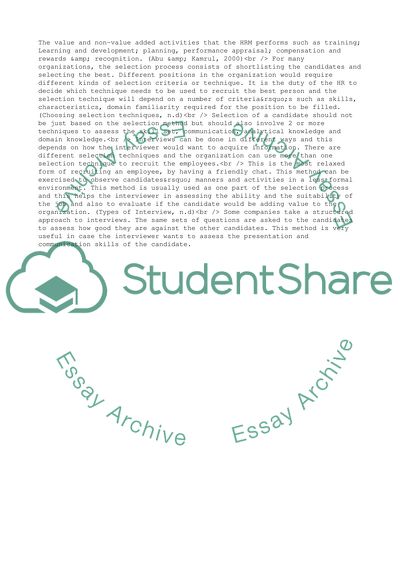Cite this document
(Importance of Selection and Recruitment Process Case Study - 19, n.d.)
Importance of Selection and Recruitment Process Case Study - 19. https://studentshare.org/management/1572926-human-resource-management
Importance of Selection and Recruitment Process Case Study - 19. https://studentshare.org/management/1572926-human-resource-management
(Importance of Selection and Recruitment Process Case Study - 19)
Importance of Selection and Recruitment Process Case Study - 19. https://studentshare.org/management/1572926-human-resource-management.
Importance of Selection and Recruitment Process Case Study - 19. https://studentshare.org/management/1572926-human-resource-management.
“Importance of Selection and Recruitment Process Case Study - 19”. https://studentshare.org/management/1572926-human-resource-management.


